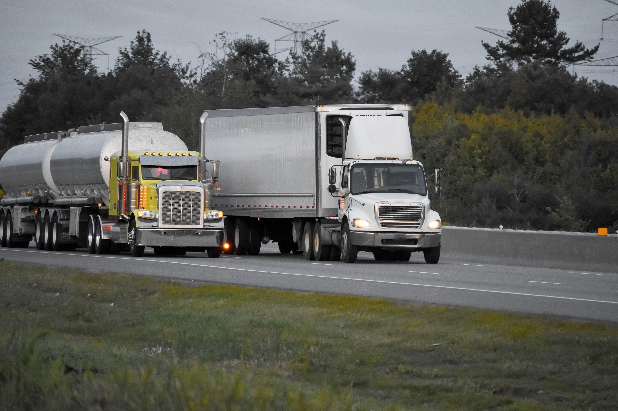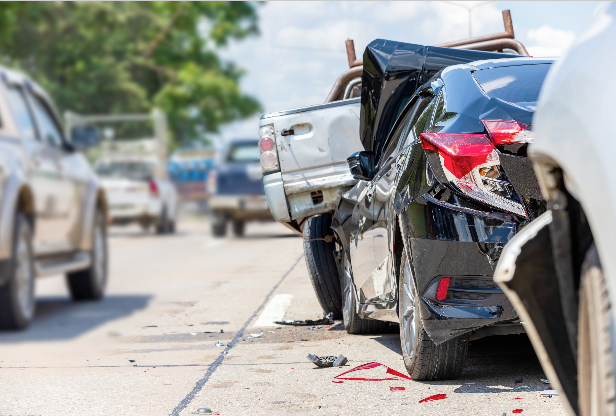What do you do if you get hit by an 18-wheeler?

Given the high likelihood of risk as described above, you should immediately call 911 if you are involved in an 18-wheeler accident. Even if no one has been killed, the size of a tractor-trailer and likely danger surrounding it blocking traffic is something that emergency services need to respond to right away.
After notifying the authorities, make sure that you, your passengers, and the drivers and passengers of the other involved cars are not seriously injured if it’s safe to do so. You’ll need to relay this information to the 911 dispatcher when possible. If there are still vehicles approaching or moving on the road, it’s best to stay in your car until emergency responders are on the scene.

Next, you will need to exchange identity and insurance information with the driver of the 18-wheeler. If police are on the scene, describe exactly what happened to the best of your recollection. If the drivers behind you have pulled over to check on you, ask them if they have a dash cam that may have recorded what happened and exchange details with them so they can send you the video. Also, take photos of the damage to your car from multiple angles.
If you are hospitalized, be sure to get detailed copies of your medical report describing your injuries, and have photos taken of your wounds. Hold onto all your bills. This also goes for car repair bills, assuming your car hasn’t been completely totaled.
If police are involved, as they likely will be with an 18-wheeler accident, get the name and contact information of the responding officer and follow up with them to obtain a copy of the police report. This will be necessary later on when dealing with insurance or if you end up in civil court.
How dangerous are 18-wheelers?
18-wheelers, also called semis or tractor-trailers, are the biggest vehicles on the road. They can weigh as much as 40 tons (the legal limit in the US). Therefore, if you have the grave misfortune of being in an accident with an 18-wheeler, it is unlikely that you will emerge unscathed.
Why are these vehicles so dangerous? The issue here is momentum, which is calculated by mass and velocity. A fully loaded 18-wheeler barrels down the road with ten or twenty times the momentum of a standard car, dealing enormous damage when involved in an accident. The following are some of the possible outcomes of one of these devastating crashes:
- Totaled vehicles
- Pileups (multiple collisions resulting from the initial accident)
- Death
- Paralysis
- Spinal damage
- Whiplash
- Internal organ damage
- Broken bones
- Cuts and lacerations
- Burns
Any of these situations can result in emergency medical care bills, the need for future medical care, and missed work. In the most extreme wrecks, drivers or passengers may lose the ability to work in the future at all.
Should I contact an attorney?
In the event that you have been hit by an 18-wheeler, it’s very likely that the costs for medical treatment and vehicle repair or replacement will be astronomical. It’s also quite probable that these costs will exceed the coverage of the 18-wheeler driver’s insurance or the insurance covering the truck company. If this is the case, the driver or their trucking company may be liable for covering your damages.
It is highly recommended that you contact a lawyer as soon as possible following the collision, especially if the at-fault party’s insurer is offering you a lowball settlement. An attorney can be your go-between with the insurance company, which will likely mean that you will get a better settlement offer than if you try to go it alone. You can click here to talk to a lawyer that is willing to fight for you.
If you live in a “no fault” state, your insurance will cover your costs up to a certain point. In a “fault” state, it will be the other driver’s insurance to pay your bills if they were at fault. In both instances, the driver who is at fault may be liable for additional compensation beyond that which is covered by insurance.





